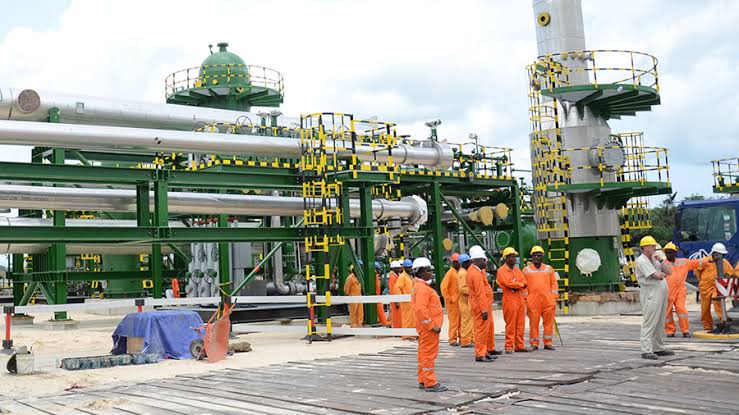
OML 24: Reps quiz NNPCL GMD, Kyari over $278.185m unremitted revenue.
By Comfort Chukwukelue.
The House of Representatives on Tuesday probed Group Managing Director of Nigerian National Petroleum Corporation Limited (NNPCL) over non-remittance of outstanding sum of $278,184,937.72 from the transfer of OML 24 to NNPCL/NEPC in 2019.
According to Nigerian Upstream Petroleum Regulatory Commission (NUPRC) records, OML 24 was transferred to NNPCL/NEPC in 2019 for a Signature Bonus of $309,094,374.72 of which only $30,909,437 has been paid, thereby leaving an outstanding of $278,184,937.72 due to Government from the NNPC/NEPL.
Chairman, House Committee on Finance, Hon. James Faleke who expressed the concern during an investigative hearing into the cost of crude oil
production and its impact on government revenue, alleged that the transfer of the asset reduces the amount of oil accruable to the Federation.
Hon. Faleke who frowned at the secrecy in the management of the industry, observed that: “from 2014 to 2024 our costs have increased by about $18 million per day or $6.6 billion per annum over 10 years; and this has not led to an increase in either reserves or production. This further implies that for a production of 1 million barrels per day we are incurring costs of $48 million per day or $17.5 billion per annum.”
He maintained that “it is important that Nigerians understand the impact of production costs on the available revenue accruable to the Federal Government to execute its programs in the National budget. The higher the cost of extracting a barrel of crude oil from the ground, the less funds available to the Government and Nigerians.
“Over the years Nigeria’s cost of oil production (both capital costs and overhead costs) has continued to increase reaching new unprecedented highs of over $48 per barrel. This implies that as crude oil now sells at about $80 per barrel, for us in Nigeria with a cost of extraction of about $48 only $32 is left to be shared with the oil companies. Compare that with $9 in Saudi Arabia, $21 in Norway or $24 for US shale oil and we see that Nigeria has one of the highest costs of oil production in the world.
“If we look further at these costs, we see they have risen steadily in Nigeria from about $30 in 2014 to $48 in 2024. To enlighten Nigerians further, if we assume our oil production is 1 million barrels per day; every additional $1 cost per barrel translates to $1 million per day.
“So, from 2014 to 2024 our costs have increased by about $18 million per day or $6.6 billion per annum over 10 years; and this has not led to an increase in either reserves or production. This further implies that for a production of 1 million barrels per day we are incurring costs of $48 million per day or $17.5 billion per annum.
“The Committee has been reviewing Oil sector figures closely since the beginning of this 10th Assembly and revenues accruing to the Federal Government and foreign exchange inflows to the country have not met previous expectations.
“In this regard we have seen that major a revenue losses to the Government are caused by various factors namely amongst others: Drop in available crude oil production (due to oil theft, shut ins, lack of new investments, reduction in output from older wells, etc)
“Pledged production volumes to offset loans and repayment arrangements taken by the NNPCL on their own behalf or on behalf of the Federation. Higher costs of oil production.
“To show the importance of this on the well-being of the economy, the latest executive orders issued by Mr. President last week touches on the issue of contracting costs and cost efficiency in the upstream oil sector. It is imperative that we, as a Nation, endeavor to increase our production volumes and at the same time reduce production costs to increase accruals to the Government.
“In alignment with these, new Executive Orders the Committee on Finance has resolved to closely scrutinize Federation expenses charged to crude oil production by the NPC and IOCs. It is imperative as these quasi-fiscal expenditures and commit




